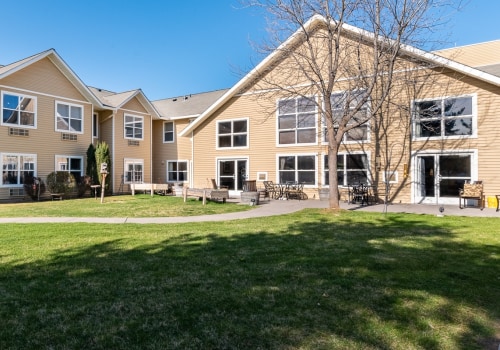Most centers offering health care services, such as dietary support, pharmaceutical support, and occupational, speech and physical therapy, also provide palliative care services, social work and mental health counseling. It is important to choose a center that invests in programs to improve the quality of life for older people, such as community outings, art and pet therapy, piano, and computer rooms. Location is critical when selecting an assisted living facility for your loved one. Most older people want to stay in the communities where they live, close to a family environment or close to their loved ones.
This also ensures that family members can visit them regularly. The staff-resident ratio is essential in assisted living because it determines the quality of care your loved one receives. Determine the number of staff available to each member of the assisted living community. Most communities have their online ratios, so look for them before committing to a particular community.
The staff-resident ratio is crucial because your loved one may not receive quality care in a low-staffed community. Choosing a community with more staff means that older people with special needs will receive the care they need, ensuring their safety and immediate care in the event of a medical emergency. Facilities may also vary depending on how you pay for them. Some may need a monthly rent, an initial cost, or follow other payment systems.
Select facilities you can afford and then narrow down your options based on other critical criteria. According to the National Center for Assisted Living (NCAL), the average size of an assisted living facility is 33 authorized beds. Size matters in different ways for each person, although what may be more important is the staff/resident ratio, since “adult foster homes” are becoming a type of assisted living facility that generally has few residents and up to one staff member for every five or six residents, although this, as expected, can raise total prices for residents. Assisted living residents often need help with some activities of daily living, such as walking, bathing and dressing, but they may not need constant nursing care.
As you explore assisted living options, remember that it's worth asking every question, even if you think they're naive or too specific. For example, some states limit the amount of medical care that nursing homes can offer, so if you need a significant amount in those states, you might not be the right candidate for an assisted living facility after all, or you might consider looking for another state. They can easily get confused between your thoughts or your notes, especially when you visit several assisted living communities. While typical assisted living facilities offer dining services, cleaning services, exercise and wellness programs, and medication management support, some provide personalized services based on specific health needs.
Whether or not you can afford an assisted living facility determines whether you should consider living there. With an increasingly wide and diverse range of assisted living options, finding an assisted living facility that's right for your loved one can take some time. Consider assisted living communities whose staff is continuously improving their training to ensure the care of your loved one. Below we've classified several questions for assisted living interviews into lists to help you get all the answers you need.
When choosing an assisted living community consider one that offers many social outlets and responsibilities to residents. Find out if potential assisted living communities such as Longhouse provide specialized care for older people with unique conditions. They will continuously offer you free advice as you search for assisted living solutions near you at no cost. Most assisted living residents pay with their personal finances such as savings long-term care insurance home equity life insurance veterans benefits or probably some combination of resources.








